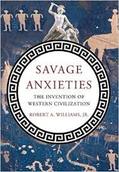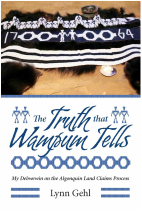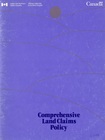|
The Tradition of the Savage: Its Origins and Implications on Contemporary Indigenous Peoples’ Rights  This lecture by legal scholar Robert A. Williams on his book titled “Savage Anxieties: The Invention of Western Civilization” is excellent. In fact, it is so excellent I have decided to annotate it and post it as a blog. Williams traces the invention of the discourse of the savage with its inherent practices back 3,000 years to Greek and Roman times where the definition consisted of a people who did not plough and plant food. It was through the invention of the savage that the Greeks and Romans structured their societies denying many their human rights to land and resources in the process. This discourse of the savage and subsequent practices is also the foundation of the Doctrine of Discovery which denies people who they are as human beings. Williams argues the 1763 Royal Proclamation, one of Canada’s founding constitutional documents, embodies this tradition of the savage, and as such the savage tradition remains a part of Canada’s constitutional jurisprudence; it is a part of Canada’s cultural DNA. Relying on the research he did for his book, Williams then argues that this tradition of the savage extends in very real ways into Canada’s Comprehensive Land Claims process.  As I have in my book “The Truth That Wampum Tells: My Debwewin on The Algonquin Land Claims Process” Williams discusses in detail the Comprehensive Land Claims (CLC) process that First Nations involved in the British Columbia Treaty Commission and the Algonquin in Ontario of which Pikwakanagan First Nation is a part, are participating in. CLC processes result in nothing more than a contract, not a treaty, between a sovereign and their subjects. Under the CLC process First Nations are reduced to a municipal form of government and as such there is no real self-determination. Through the CLC process compensation and private lands are not on the table, and also First Nations are forced to pay back the provincial and federal loans required to negotiate for their own land and resource rights. It is through this federal land claims policy that the tradition of the savage continues to harm contemporary Indigenous people.  Despite CLC policy evolution, the blanket extinguishment policy has been changed to a modified rights policy that essentially means the same thing: nothing for Indigenous people. Clearly Canada is playing semantics with their policy adjustments where as a result domestic remedies have proven pathetic. This is precisely the reason why many First Nations will not participate in the CLC process and why others will not move past the Agreement in Principle stage because Canada refuses to abandon their savage policy. Williams further explains that when settlements under the CLC policy do result there is the issue of non-implementation on the part of the provinces and Canada. The Nisga’a Nation, for example, are in the process of suing Canada for failing to implement. In short, Canada does not even have the integrity to honour contemporary settlements once they are established. Williams also offers his analysis regarding Canada opting not to sign the United Nations Declaration on the Rights of Indigenous Peoples explaining that under the constitution of the United Nations general assembly, once a vote is cast, it is there forever. As such, even if Canada (read the Harper government) claims to have changed their mind on their vote, the bottom line is Canada continually refuses to comport their domestic law within international law which states the Doctrine of Discovery with its tradition of the savage is a racist doctrine from the colonial era that has no place in the 21st century. Interestingly, Williams ends the lecture arguing he has no confidence in the court process, both domestic or international. He argues it is best to publicize, through advocacy efforts, Indigenous human rights violations as the mechanism to pressure the governments to change their policies. Needed are aggressive human rights campaigns. You can subscribe to my blog here. Check your spam folder to verify it. Please like and share this blog. Miigwetch.  Lynn Gehl, Ph.D. is an Algonquin Anishinaabe-kwe from the Ottawa River Valley. She has a section 15 Charter challenge regarding the continued sex discrimination in The Indian Act, and is an outspoken critic of the Ontario Algonquin land claims and self-government process. She has three books: Anishinaabeg Stories: Featuring Petroglyphs, Petrographs, and Wampum Belts, The Truth that Wampum Tells: My Debwewin of the Algonquin Land Claims Process, and Mkadengwe: Sharing Canada's Colonial Process through Black Face Methodology. You can reach her at [email protected] and see more of her work at www.lynngehl.com.
4 Comments
Philip Kienholz
10/15/2015 07:46:20 am
Lynn, this looks very interesting. But the link that you have entitled "lecture" in the first sentence does not lead to the lecture but to the book publisher's page on the book. Is this intentional? I would like to view the lecture. Thanks for annotating the book.
Reply
Lynn
10/15/2015 04:15:21 pm
Miigwetch Philip for helping my process. I edited the link.
Reply
10/16/2015 09:50:49 pm
Over a decade ago, a book on our bookshelf at home that often caught my attention was: "We were not the Savages" by Daniel N. Paul.
Reply
Lynn Gehl
10/17/2015 04:59:14 pm
Miigwetch Pamela.
Reply
Your comment will be posted after it is approved.
Leave a Reply. |
|
To subscribe to Lynn's Blog: click here
To subscribe to Lynn's Newsletter: click here To follow Lynn on her Public Facebook Page: click here To subscribe to Lynn's YouTube channel: click here To book Lynn as a speaker: click here To contact Lynn/License her work: click here Copyright Dr. Lynn Gehl, 2024 All Rights Reserved
|
 RSS Feed
RSS Feed
